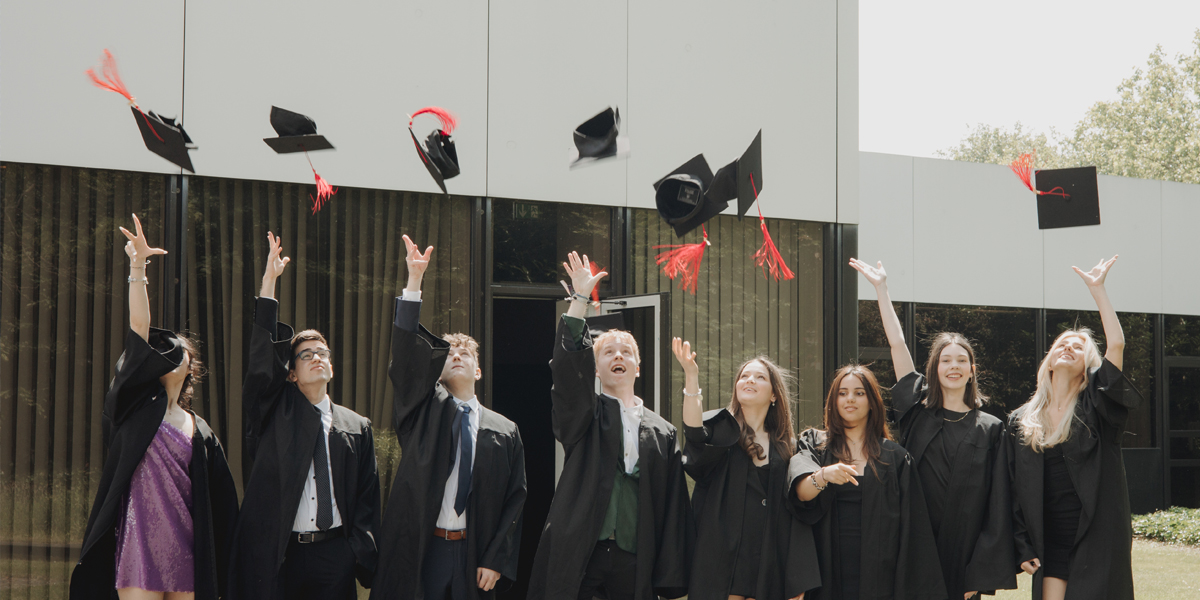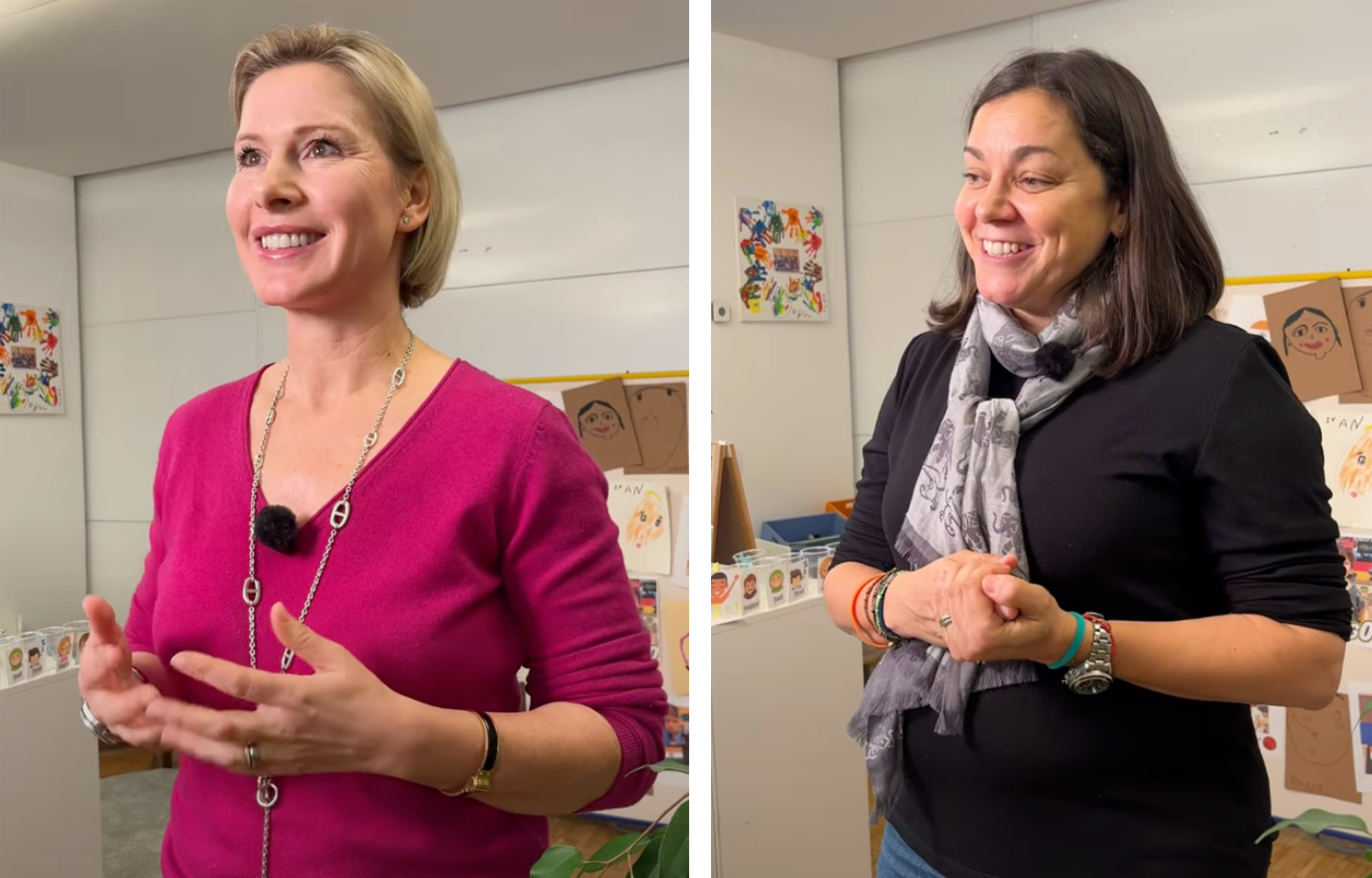Our secondary years curriculum is based on inquiry and concept-based learning, providing a rich and stimulating educational experience for our students. We offer a flexible curriculum, encouraging learners to engage with a variety of subjects and make connections between them. This approach is fundamental to interdisciplinary and transdisciplinary learning and fostering cross-curricular connections, making learning more relevant and engaging for our students. Our curriculum provides a framework for education that is highly flexible and focuses on skill development, application, and understanding of the subjects. This allows our teachers to personalize the curriculum to meet the specific needs of our students and maximize their learning outcomes. Our school offers two international programs in the secondary years,the Cambridge IGCSE program and the IB Diploma Programme. Both are internationally recognized educational programs that provide a comprehensive and rigorous learning experiences for our students.
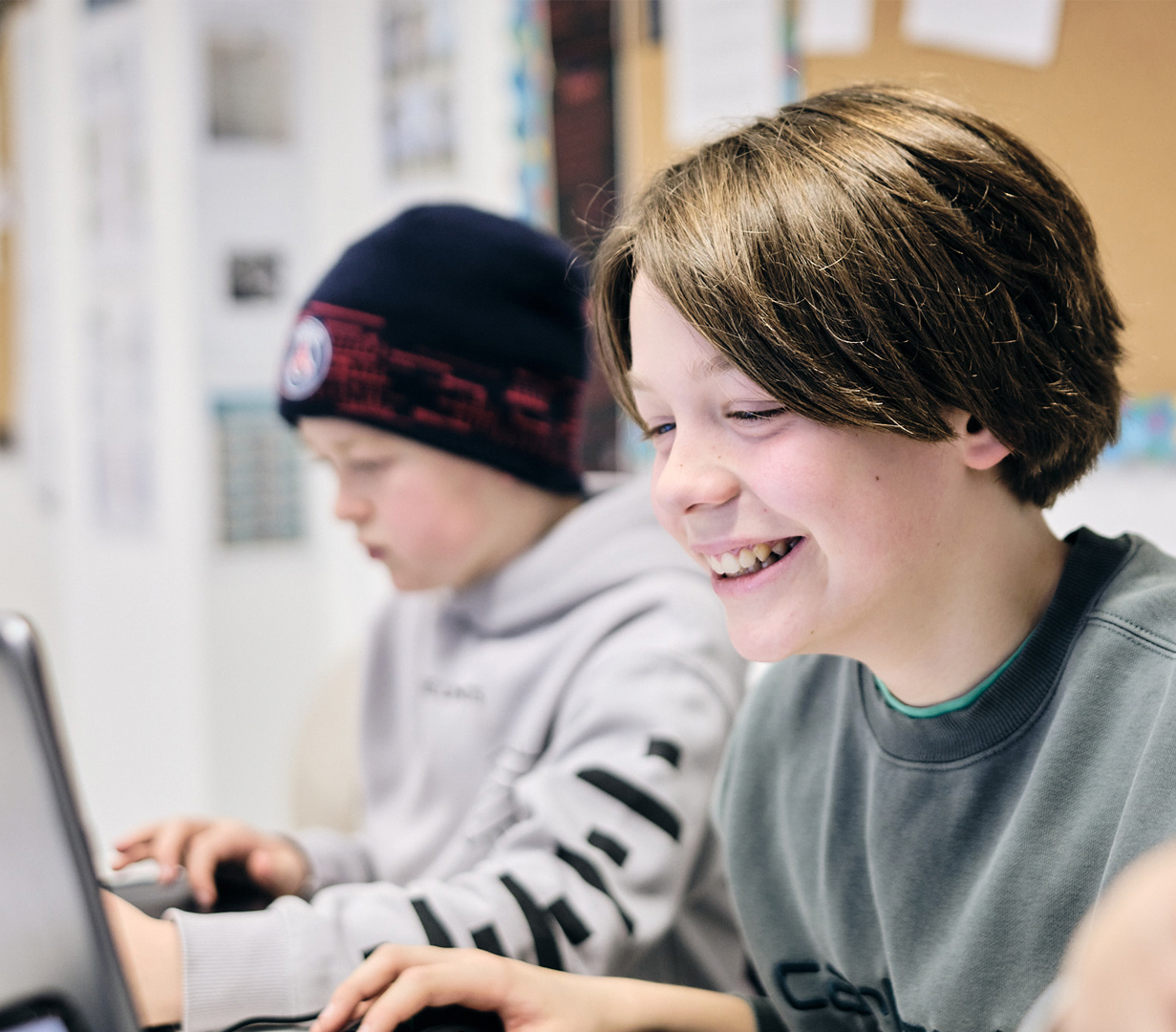
secondary years curriculum
CAMBRIDGE IGCSE
The Cambridge IGCSE program is the world’s most popular international qualification for 14 to 16 year olds. It offers a flexible curriculum that encourages learners to engage with a variety of subjects and make connections between them. In Germany, the Cambridge IGCSE certificates are recognized as equivalent to the Mittlere Reife, an intermediate school-leaving certificate that is usually awarded after ten years of schooling. Students take externally assessed exams at the end of their two year program in 10th grade. The general minimum requirements for this equivalency include five Cambridge IGCSEs subjects with a final grade of C or higher. Amongst these subjects students need to take two languages, Mathematics, Combined Science and a Social Science subject (e.g., Geography or History).
INTERNATIONAL BACCALAUREATE (IB)
The International Baccalaureate (IB) Diploma Programme is a globally-recognized educational program designed for students aged 16 to 19. It is a concept-driven, inquiry-based curriculum that aims to develop students’ knowledge with comprehensive breadth and depth. This approach encourages students to engage critically and creatively with significant ideas beyond the surface level of knowledge, promoting a deeper understanding of the subjects and enabling application of skills to real-world scenarios.
The curriculum is made up of six subject groups, and students are required to take courses from each group, ensuring a well-rounded balanced education. Subjects are offered at both standard level (SL) and higher level (HL). Standard level subjects require 150 teaching hours, while higher level subjects comprise 240 teaching hours. The difference between SL and HL subjects lies in the depth of syllabus coverage, not in the level of difficulty: HL subjects cover additional topics and require students to study the subject in greater depth.
The IB Diploma Programme is designed to develop students who excel in traditional academic subjects while also exploring the nature of knowledge through the programme’s unique theory of knowledge (TOK) course. This approach ensures that students not only demonstrate knowledge, but also develop the capacity to enact the IB Learner Profile, which calls on students to be principled, caring individuals who are inquirers, thinkers, risk-takers, communicators, open-minded, balanced, and reflective. As part of the core of the Diploma Programme, each student must produce a 4000-word research paper intended to prepare them for the rigor of post-secondary studies. The program also encourages students to be risk-takers by leading and participating in different projects and experiences related to service-learning. This occurs through the Creativity, Activity, Service (CAS) component of the DP core, , which gives students the opportunity to situate their classroom knowledge, engage in personal development, and discover their passions in a real-world environment while also serving their community.
Subjects offered
Grades 6 to 8 Creative subjects (Journalism, Art and Music, 2 hours weekly), English A, German A/B, Mathematics, Physical Education (units include: health and fitness, hockey, parcours, handball, volleyball, badminton, track and field, football, ultimate frisbee, tennis or archery, 4 hours weekly) Science and Spanish.
Grade 6 Approaches to Learning (ATL)
Grade 6 to 7 Social Studies
Grade 8 Business Management
Grades 9 to 10 Creative subjects (Journalism, Art and Music, 2 hours weekly), English A, Geography, German A/B, History, Mathematics, Physical Education (gymnastics, yoga, net games such as badminton and volleyball, track and field, swimming, hockey, basketball, 3 hours weekly), Science and Spanish.
Grades 11 to 12 Biology, Business Management, Chemistry, Creativity, Activity, Service (CAS), English A/B, Extended Essay, Geography, German A/B, History, Mathematics, Physics, Spanish B (grade 12) and Theory of Knowledge (TOK).
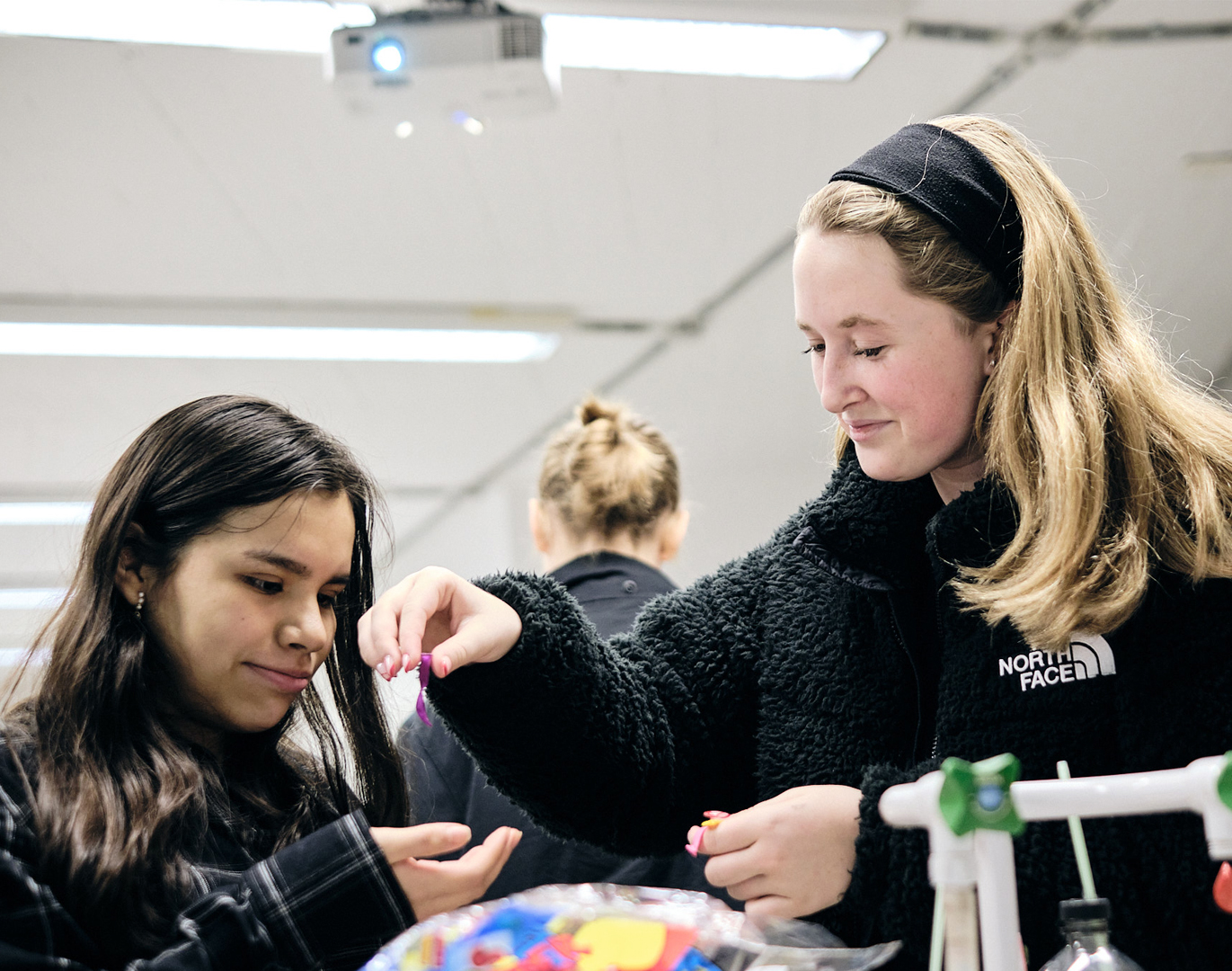
Interest piqued?
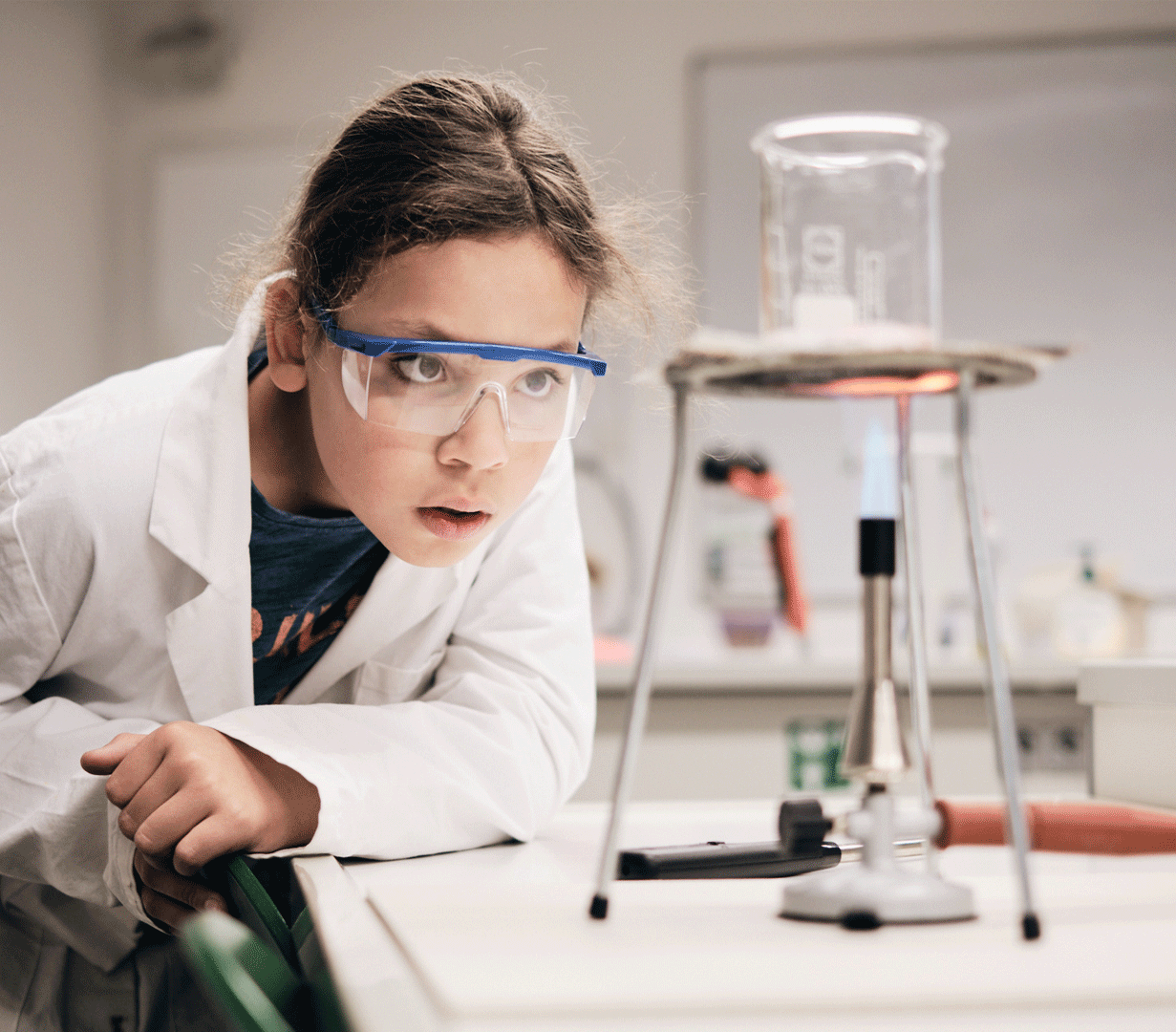
AUTONOMOUS LEARNING
Our well-equipped Learn Atelier gives students the opportunity to develop autonomous learning skills and to grow into fully independent learners. Students are supported through this process, with the help of their coach, slowly gaining more independence. During their time in the Learn Atelier, students work quietly and independently on carefully planned work, based on goals and plans set out in their student planner. The ability to work independently is a skill that positions our students very well for success after graduation.
STUDENT LEADERSHIP
Student Leadership at the IS Ruhr allows each student to take ownership of their school and work on developing communication, problem solving and leadership skills. The students help to plan events for the school such as fun holiday events, fundraising opportunities and various international days throughout the academic year. They have the opportunity to run for roles within the student leadership at the beginning of each year, with a focus on democratic elections. All students are welcome to join student leadership regardless of holding a role or not.
SCHOOL TRIPS
School trips closely align with our curriculum. As a school we strive to create authentic learning experiences that allow our students to engage actively with the skills and content we teach. An emphasis is put on exploring our city, region, and host country, Germany.
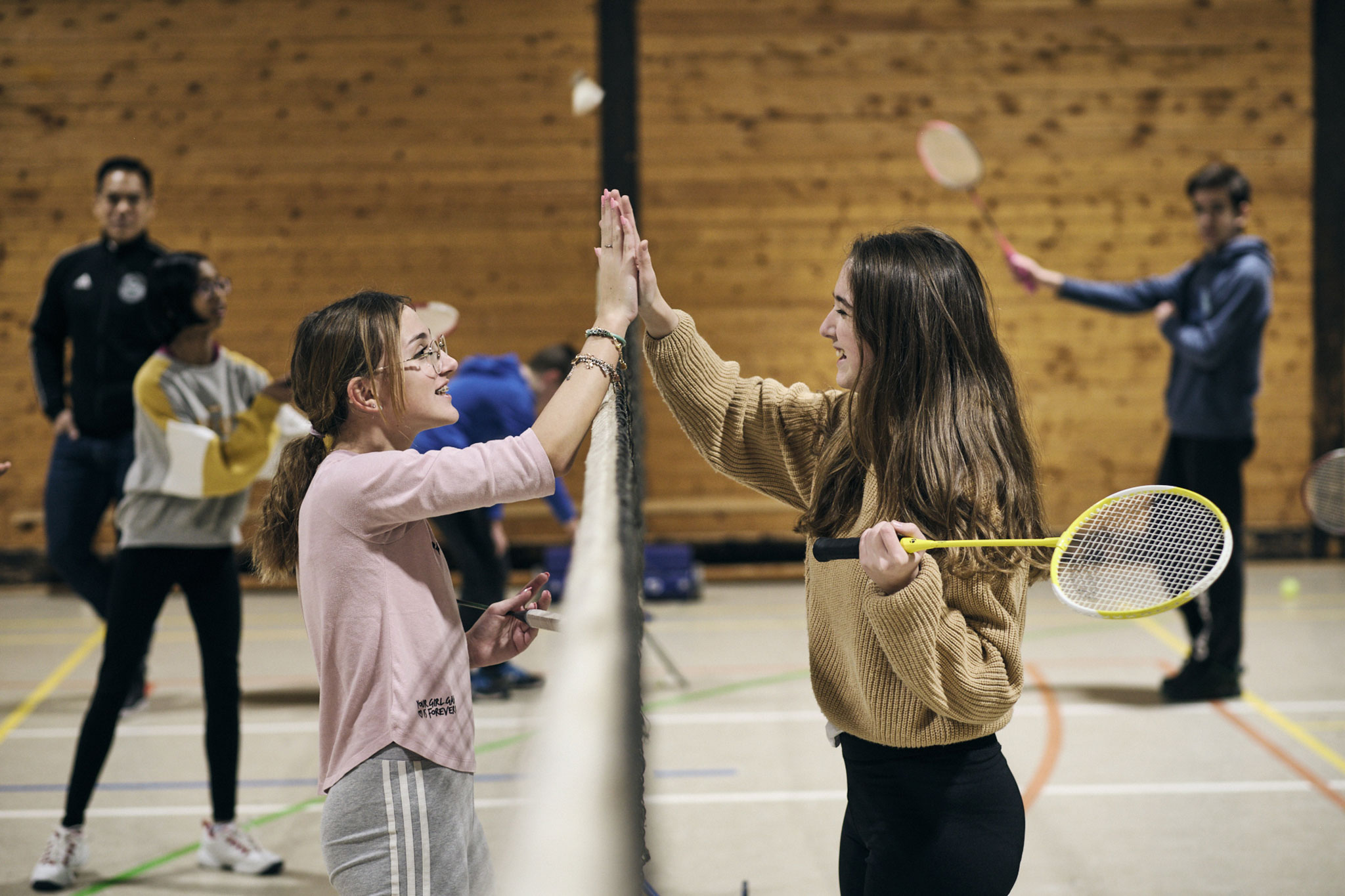
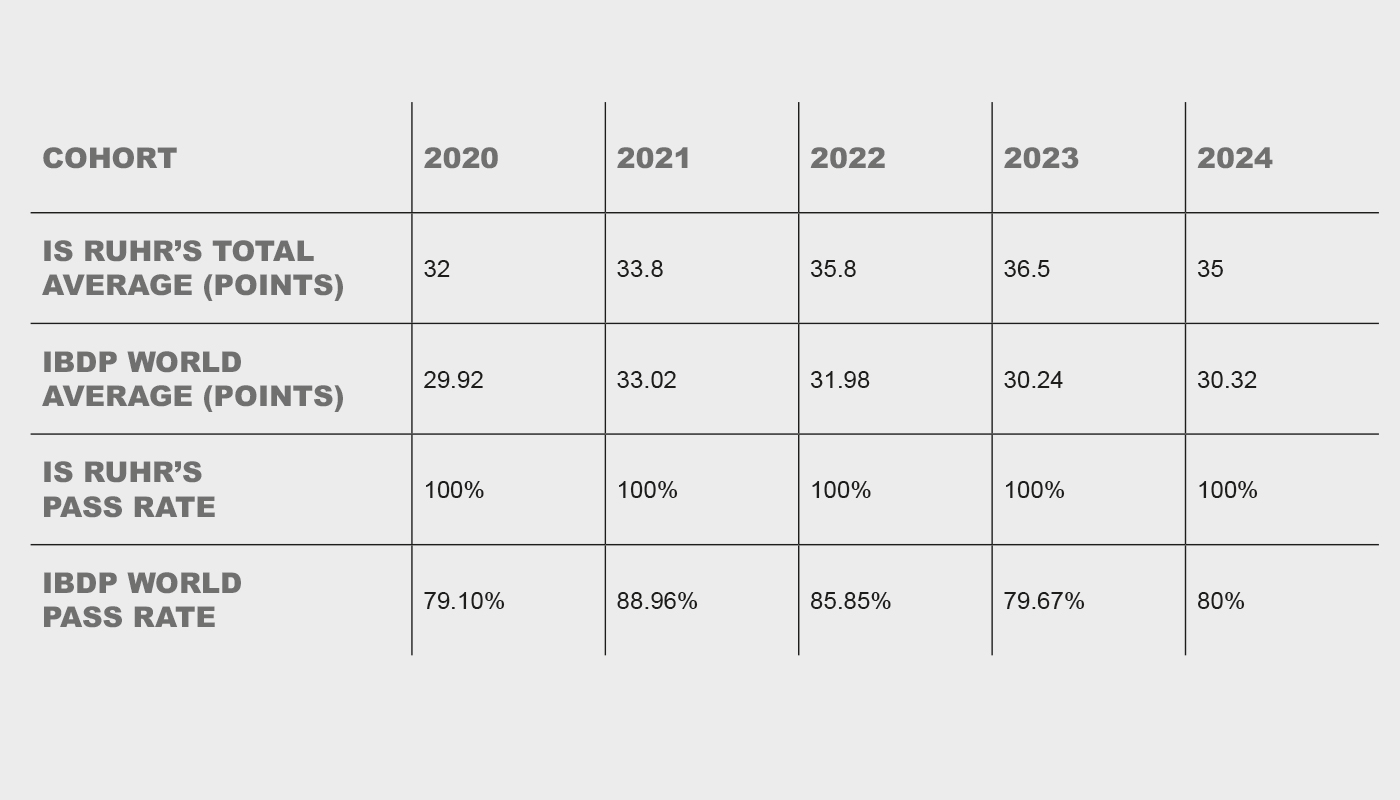
IS Ruhr IB diploma results since 2020
The IB Diploma Programme at IS Ruhr goes beyond academic achievement – it is a world-class preparation for university and a foundation for lifelong success. Our students’ exceptional results reflect their dedication to inquiry-based learning, critical thinking, and personal growth. We are proud to share that our IB Diploma results surpass the world average, demonstrating our commitment to excellence through the hard work of our students and educators alike. These achievements underscore our role in shaping well-rounded, intellectually curious young adults, ready for success at leading universities worldwide.
RECOGNITION IB DIPLOMA WOLDWIDE
Higher education institutions around the world admit students based on their IB credentials. If you are interested in admission to a special university, we will advise and support you. Learn more about the country recognitions of the IB Organisation.
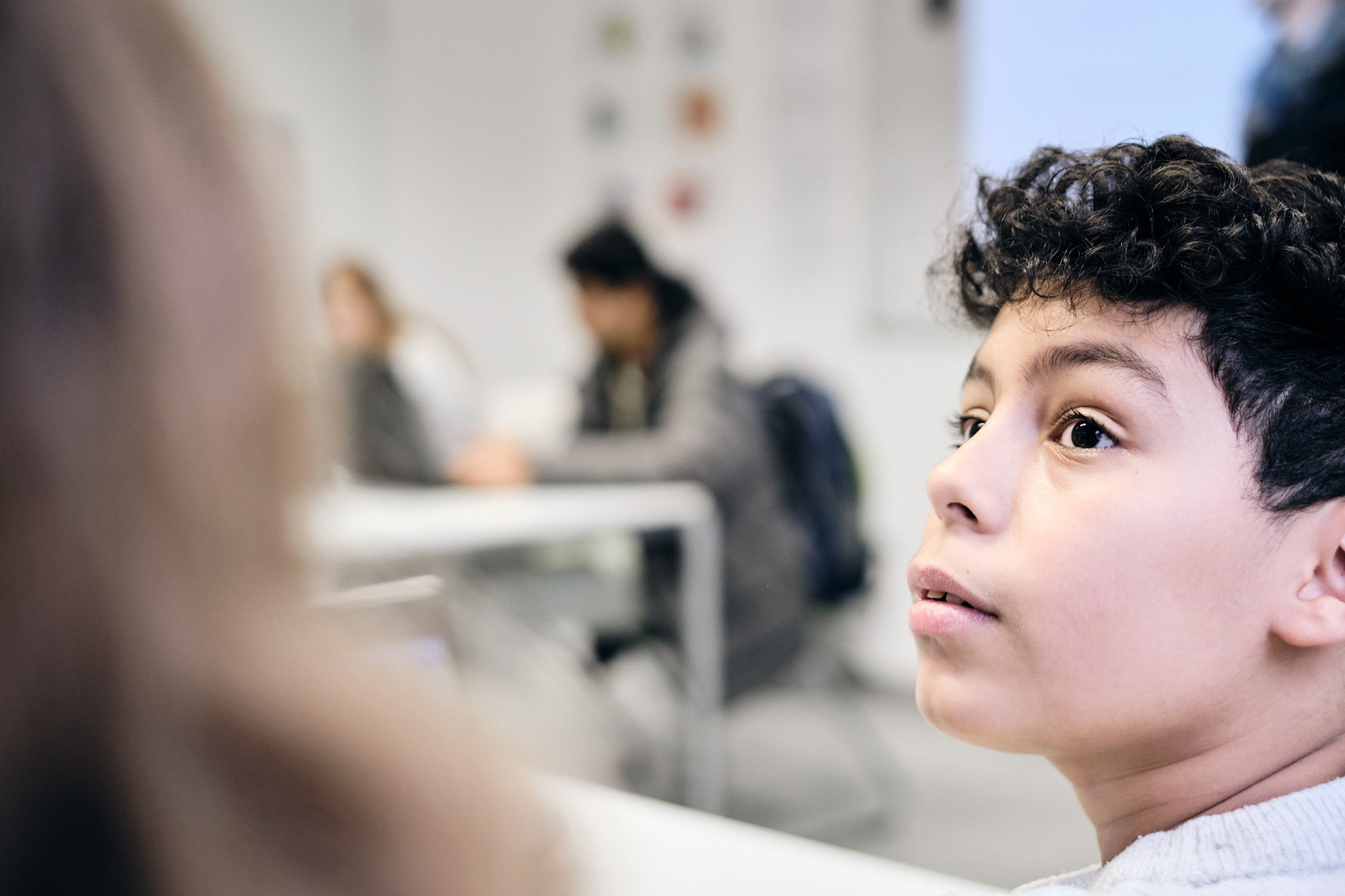
RECOGNITION IB DIPLOMA IN GERMANY
The International Baccalaureate Diploma that is awarded by the Geneva-based, private sector International Baccalaureate (IB) Organisation is generally recognised as a school-leaving certificate throughout Germany. Please find here the official information of the Standing Conference of Education Ministers on 10 March 1986 with all details. If you have ave any further questions about recognition, we will be pleased to advise you at any time.
SECONDARY SCHOOL AT A GLANCE.
ENTRY AT ANY TIME.
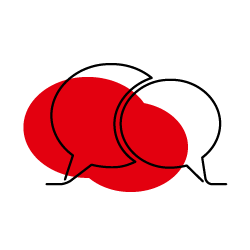
International Mindedness
Our curriculum provides resources from a variety of perspectives and cultures which allows our students to develop the knowledge and understanding of what it means to be a world citizen.
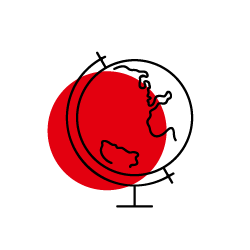
Autonomous Learning
Opportunity to develop skills for independent learning by implementing their knowledge of the ATL (approaches to learning) skills.
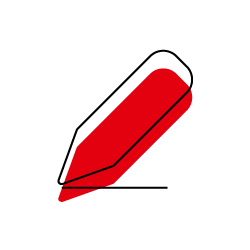
Coaching
Our pastoral care program ensures individual support for each student according to their needs through our coaching curriculum.
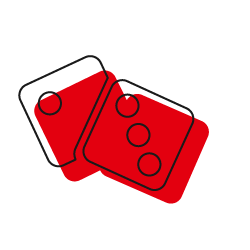
INQUIRY BASED LEARNING
Real world problem based learning with interdisciplinary opportunities ensure adolescents remain engaged in their learning.
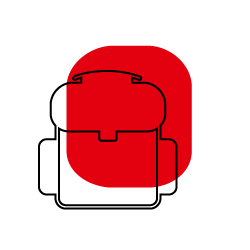
Student Leadership
Students have the opportunity to show agency and take personal responsibility by actively participating in the Student Council.
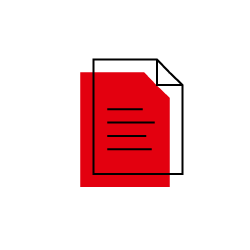
INTERNATIONAL RECOGNITION
Access to the best German and international universities through our dual Cambridge examination IGCSE and IB Diploma Programmes. Our students are sought after by universities and colleges globally.


